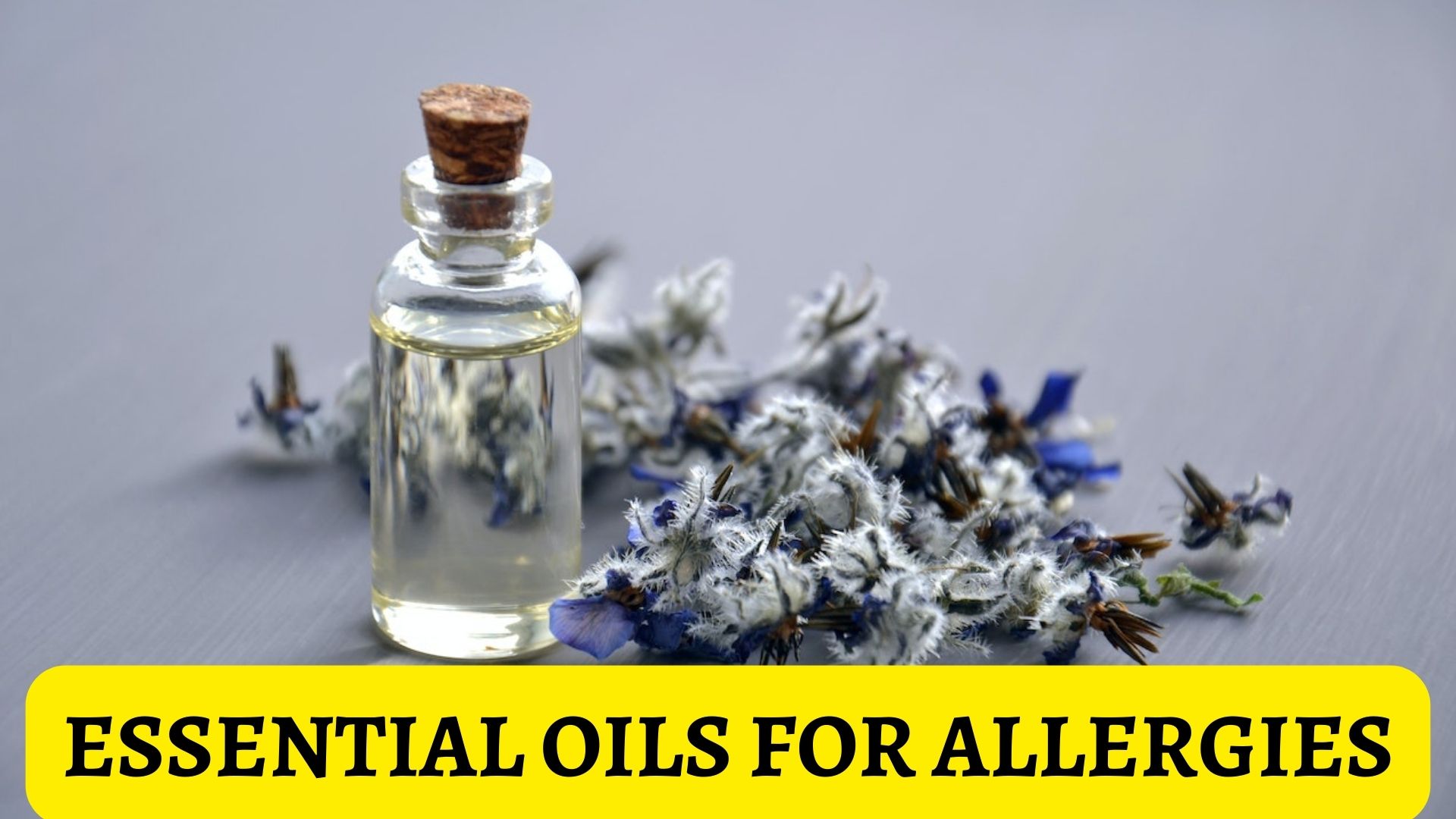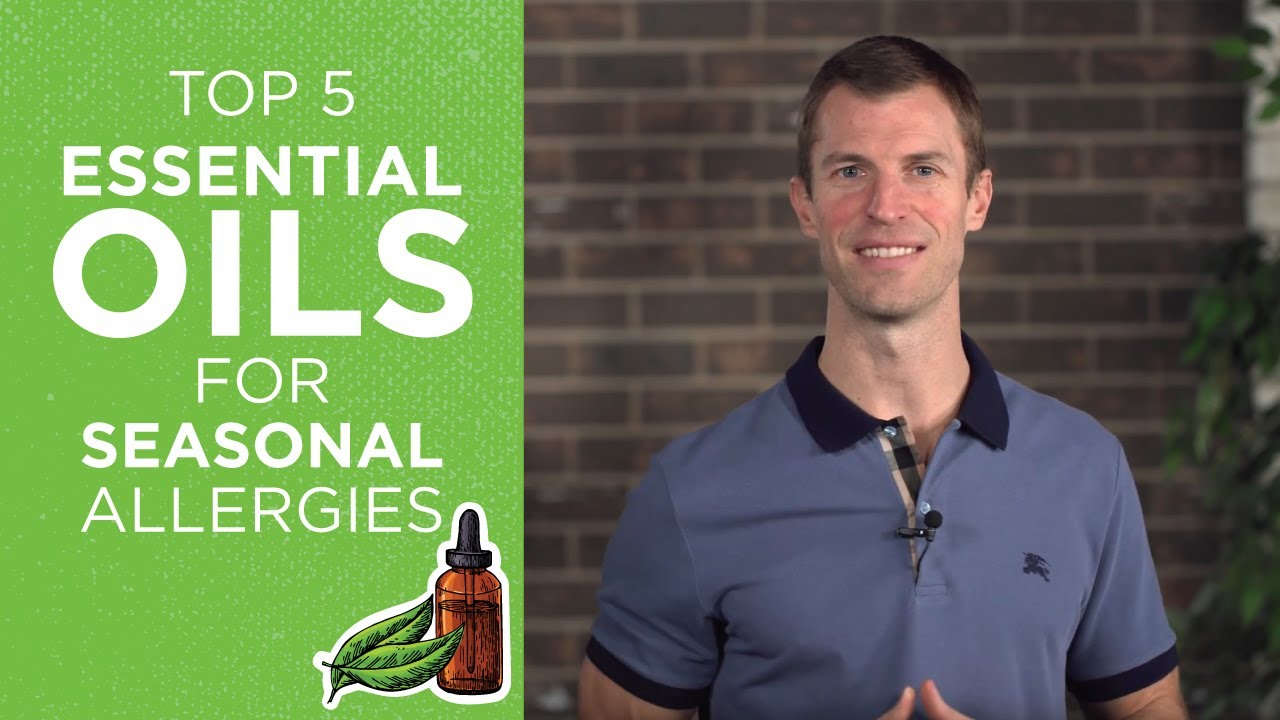Essential Oils For Allergies - Help With Seasonal Allergy Symptoms
One of the most well-liked natural therapies is using essential oils for allergies. These distilled plant-based concentrated aromatic solutions have been used medicinally for ages. Allergies might strike in the late winter, early spring, or even the late summer and early autumn. Occasionally, allergies might happen when a plant to which you are allergic blossoms. Or, during certain seasonal months, you can have constant allergies.
Author:Suleman ShahReviewer:Han JuNov 12, 20227 Shares339 Views

One of the most well-liked natural therapies is using essential oils for allergies. These distilled plant-based concentrated aromatic solutions have been used medicinally for ages.
Allergies might strike in the late winter, early spring, or even the late summer and early autumn. Occasionally, allergies might happen when a plant to which you are allergic blossoms. Or, during certain seasonal months, you can have constant allergies.
The symptoms of allergies may be treated alternatively or additionally using essential oils. They come from plants and have a wide range of applications. Typical applications for essential oils include:
- Diffusing them into the air.
- Using them in bath and spa products.
- Applying them to the skin when diluted.
- Spraying them into the air.
- Breathing them in directly from the container.
Aromatherapy is the process of inhaling the fragrances of oils. Your body is stimulated by this activity via scent. Your body's other systems may be impacted by what you smell. Applying the oils to your body causes them to enter your bloodstream, much as with aromatherapy. Before using essential oils on your skin, you should always dilute them.
For this, a carrier oil such as sweet almond oil or olive oil might be useful. Typically, 5 drops of the essential oil are used to 1 ounce of carrier oil. There isn't a lot of data to back up the usage of essential oils, but new studies are constantly being published. You could profit from aromatherapy if you practice it carefully.
Here are a few essential oils you may want to try if you wish to use them in your lifeto reduce allergy symptoms.
Essential Oils For Allergies
The muscles that cause coughing may be helped to relax using peppermint oil. Watery eyes, runny noses, sneezing, coughing, wheezing, and chest tightness are all signs of seasonal allergies. Swelling, itching, and redness are side effects of skin allergies.
The following oils for seasonal or skin allergies may be of interest to those who have these allergy symptoms. It is best to speak with a doctor before using the essential oil and then use care after that. Some oils may exacerbate skin allergies.
Peppermint
Since peppermint oil relaxes smooth muscle, it lessens the spasms that lead to coughing. The symptoms of worry and mental tiredness, which are often experienced by allergy patients, may also be treated with the oil. Seasonal allergies may benefit from the usage of peppermint.
Frankincense
Another oil that lessens inflammatory activity in the body is frankincense. Frankincense has anti-inflammatory properties that make it effective against sinus infections and bronchitis, which causes airway irritation. Asthmasufferers can also benefit from it. Seasonal allergy problems may be relieved with the use of frankincense.
Eucalyptus
Treating upper respiratory tract infections with a combination of oils that includes eucalyptus results in a considerable and quick improvement in symptoms. Hoarseness, a cough, and a sore throat were all less frequent among the participants.
Seasonal allergies may cause these symptoms to manifest. Eucalyptus citriodora, Eucalyptus globulus, peppermint, Syrian oregano, and rosemary made up the essential oil combination employed in the research.
Lavender
The natural anti-inflammatory, anti-anxiety, and sleep-inducing properties of lavender may help those who suffer from allergies.
Lavender is a particularly effective remedy for skin allergies since it is kind to the skin, soothes irritability, and, according to a study, hastens recovery. The oil may be used on the skin alone or combined with bath salts, lotions, and other skincare products.

Top Essential Oils for Allergies | How to Use Essential Oils for Sinus Relief | Dr. Josh Axe
Cautions Regarding Essential Oils
Contrary to other over-the-counter allergy medications, there is little scientific data to support the use of essential oils as a secure and efficient method of treating symptoms.
Even if essential oils alleviate your symptoms and address the root cause, which is your allergic reaction, the respite will only last a limited time. Essential oils could even be toxic in specific situations.
Before using essential oils for allergies so they don't exacerbate your symptoms, speak to your healthcare practitioner first. Some individuals find essential oils unpleasant, particularly if used topically.
Always adhere to the instructions on the bottle of your essential oil. Never consume essential oils, and keep them kept out of the reach of kids and animals.
People Also Ask
What Essential Oils Are Good For Relieving Allergies?
There are several essential oils, such as lavender, eucalyptus, and peppermint, that might help lessen allergy symptoms.
Do Essential Oils Work For Allergies?
There isn't enough research to determine how effective or safe essential oils are at reducing allergy symptoms. Your doctor can recommend a treatment plan.
How To Mix Essential Oils For Allergies?
There isn't enough scientific evidence to support the safety or effectiveness of essential oils for allergy relief. Consult a doctor before mixing essential oils.
Conclusion
We hope you now have got all the answers to your questions regarding essential oils for allergies. We would be very interested in learning about your experiences with essential oils. Feel free to leave a remark below. It was a pleasure for us to react to you.

Suleman Shah
Author
Suleman Shah is a researcher and freelance writer. As a researcher, he has worked with MNS University of Agriculture, Multan (Pakistan) and Texas A & M University (USA). He regularly writes science articles and blogs for science news website immersse.com and open access publishers OA Publishing London and Scientific Times. He loves to keep himself updated on scientific developments and convert these developments into everyday language to update the readers about the developments in the scientific era. His primary research focus is Plant sciences, and he contributed to this field by publishing his research in scientific journals and presenting his work at many Conferences.
Shah graduated from the University of Agriculture Faisalabad (Pakistan) and started his professional carrier with Jaffer Agro Services and later with the Agriculture Department of the Government of Pakistan. His research interest compelled and attracted him to proceed with his carrier in Plant sciences research. So, he started his Ph.D. in Soil Science at MNS University of Agriculture Multan (Pakistan). Later, he started working as a visiting scholar with Texas A&M University (USA).
Shah’s experience with big Open Excess publishers like Springers, Frontiers, MDPI, etc., testified to his belief in Open Access as a barrier-removing mechanism between researchers and the readers of their research. Shah believes that Open Access is revolutionizing the publication process and benefitting research in all fields.

Han Ju
Reviewer
Hello! I'm Han Ju, the heart behind World Wide Journals. My life is a unique tapestry woven from the threads of news, spirituality, and science, enriched by melodies from my guitar. Raised amidst tales of the ancient and the arcane, I developed a keen eye for the stories that truly matter. Through my work, I seek to bridge the seen with the unseen, marrying the rigor of science with the depth of spirituality.
Each article at World Wide Journals is a piece of this ongoing quest, blending analysis with personal reflection. Whether exploring quantum frontiers or strumming chords under the stars, my aim is to inspire and provoke thought, inviting you into a world where every discovery is a note in the grand symphony of existence.
Welcome aboard this journey of insight and exploration, where curiosity leads and music guides.
Latest Articles
Popular Articles
